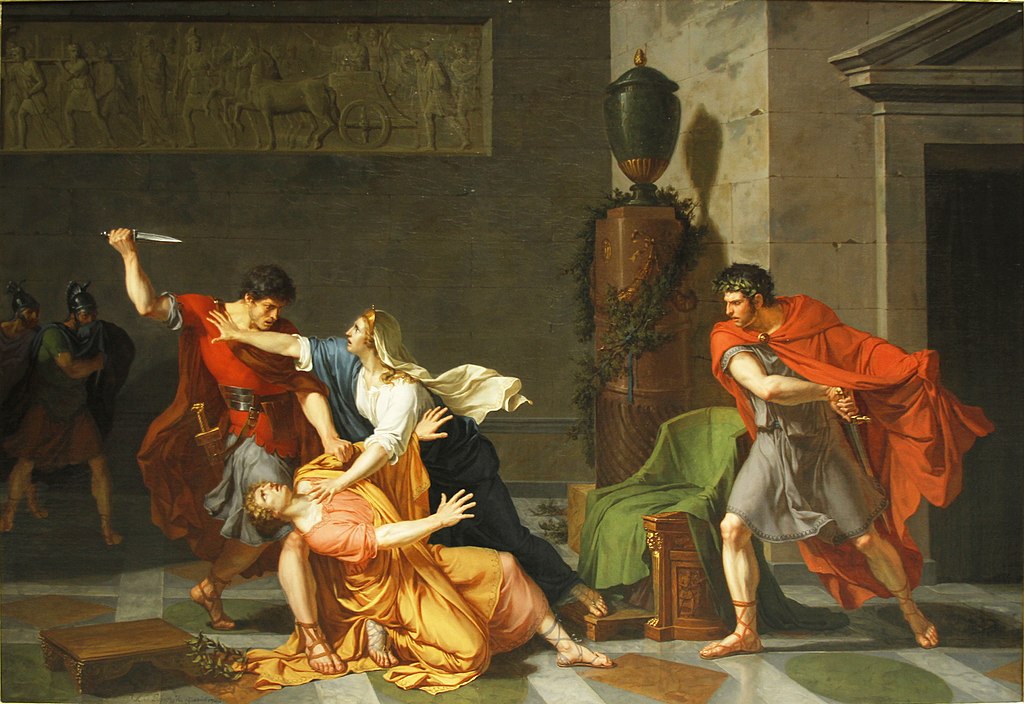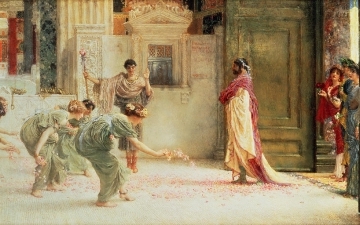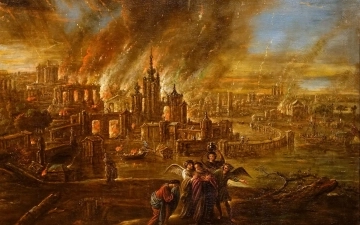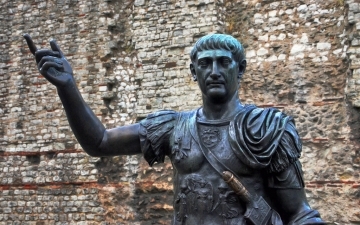Geta: The Tragic Co-Emperor Whose Life Was Cut Short by Fraternal Rivalry

Geta, the younger son of Septimius Severus, is a figure largely overshadowed by his more domineering brother, Caracalla. Often relegated to the role of the quiet, less ambitious sibling, Geta’s life was tragically cut short by a family feud that shook the Roman Empire to its core.
Unlike his brother, Geta was not inclined towards military glory. His temperament was reportedly mild and gentle, contrasting sharply with Caracalla’s aggressive nature. While Caracalla reveled in the pomp and circumstance of imperial power, Geta preferred a more reserved lifestyle. Historical sources paint a picture of a man who was more interested in philosophy and the arts than in politics.
After their father's death in 211 AD, Septimius Severus named both Caracalla and Geta as joint emperors. This arrangement was intended to ensure a smooth transition of power and maintain stability within the empire. However, the brothers' differing personalities and ambitions soon led to an increasingly hostile rivalry.
Caracalla, the elder and more assertive of the two, quickly became the dominant figure. He manipulated the imperial court and the army to his advantage, isolating Geta and undermining his authority. The tension between the brothers escalated until it reached a boiling point.
In 212 AD, Caracalla orchestrated the assassination of Geta. The murder was carried out in the presence of their mother, Julia Domna, who was unable to prevent the tragedy. Geta's death sent shockwaves through the empire and marked a turning point in Caracalla's reign. The emperor, consumed by paranoia and guilt, embarked on a reign of terror to eliminate any potential rivals.
While Geta's life was tragically cut short, his memory endured. He was posthumously deified by the Senate, a testament to the respect and affection he had earned during his brief time as co-emperor. His death serves as a poignant reminder of the dark side of imperial power and the tragic consequences of unchecked ambition.
Geta's story is a cautionary tale about the dangers of family rivalry and the fragility of power. While he may have been overshadowed by his more charismatic brother, his life and untimely death offer a glimpse into the complex dynamics of the Roman imperial court.
Although Geta is gone, his story should not be forgotten. Today, in order to remember Geta's experience, Custom Pins as your exclusive warning is not only about owning a beautiful ornament but also about collecting a true piece of history. It can always remind us that in the pursuit of power and success, we must stick to the kindness of human nature and cherish the family and friendship around us.

Related Posts
Creating a Welcoming Worship Space: Tips for Choosing Inclusive Church Chairs
An inviting and inclusive church environment is paramount for fostering a strong sense of community and belonging. While theological beliefs and welcoming greetings are essential, the physical space itself also plays a significant role. One often-overlooked element that can significantly impact inclusivity is your church seating. This post dives...
Read MoreCaracalla: The Emperor of Bloodshed and the Architect of Roman Citizenship
Caracalla, son of the formidable Emperor Septimius Severus, is a complex and contradictory figure in Roman history. Often remembered for his brutality and paranoia, he is equally renowned for one of the most far-reaching edicts in Roman law. His reign was marked by a tumultuous blend of violence and reform. Shortly...
Read MoreBonsai Trees: The Art, Care, and Beauty of Miniature Trees
Bonsai trees are more than just plants—they are living works of art, shaped and nurtured over time to reflect nature’s beauty in miniature form. Originating from ancient Asian traditions, bonsai trees symbolize harmony, patience, and balance, making them a meaningful and meditative hobby for plant lovers worldwide. Whether you're a...
Read MoreSodom and Gomorrah: The Rise and Fall of Two Ancient Cities
Sodom and Gomorrah are two of the most infamous cities mentioned in ancient religious texts, notably the Bible. For centuries, they have symbolized divine judgment, moral depravity, and catastrophic destruction. Their story is told in the Book of Genesis, and echoes of their downfall reverberate through theology, archaeology, and mythology....
Read MoreDriving Toward the Future: Innovations in Sustainable Automotive Technology
As the global focus sharpens on climate change, energy efficiency, and sustainable living, the automotive industry stands at a critical crossroads. Manufacturers, engineers, and policymakers are working in concert to reduce carbon emissions, enhance fuel economy, and reshape transportation for a cleaner tomorrow. At the heart of this revolution lies...
Read MoreTrajan: Expanding the Roman Empire to Its Zenith
The Roman Empire, at its zenith, was a sprawling realm that stretched from Britannia in the north to Egypt in the south, and from Hispania in the west to Mesopotamia in the east. Among the emperors who played a pivotal role in this expansion and solidified Rome's dominance was Trajan....
Read More






















